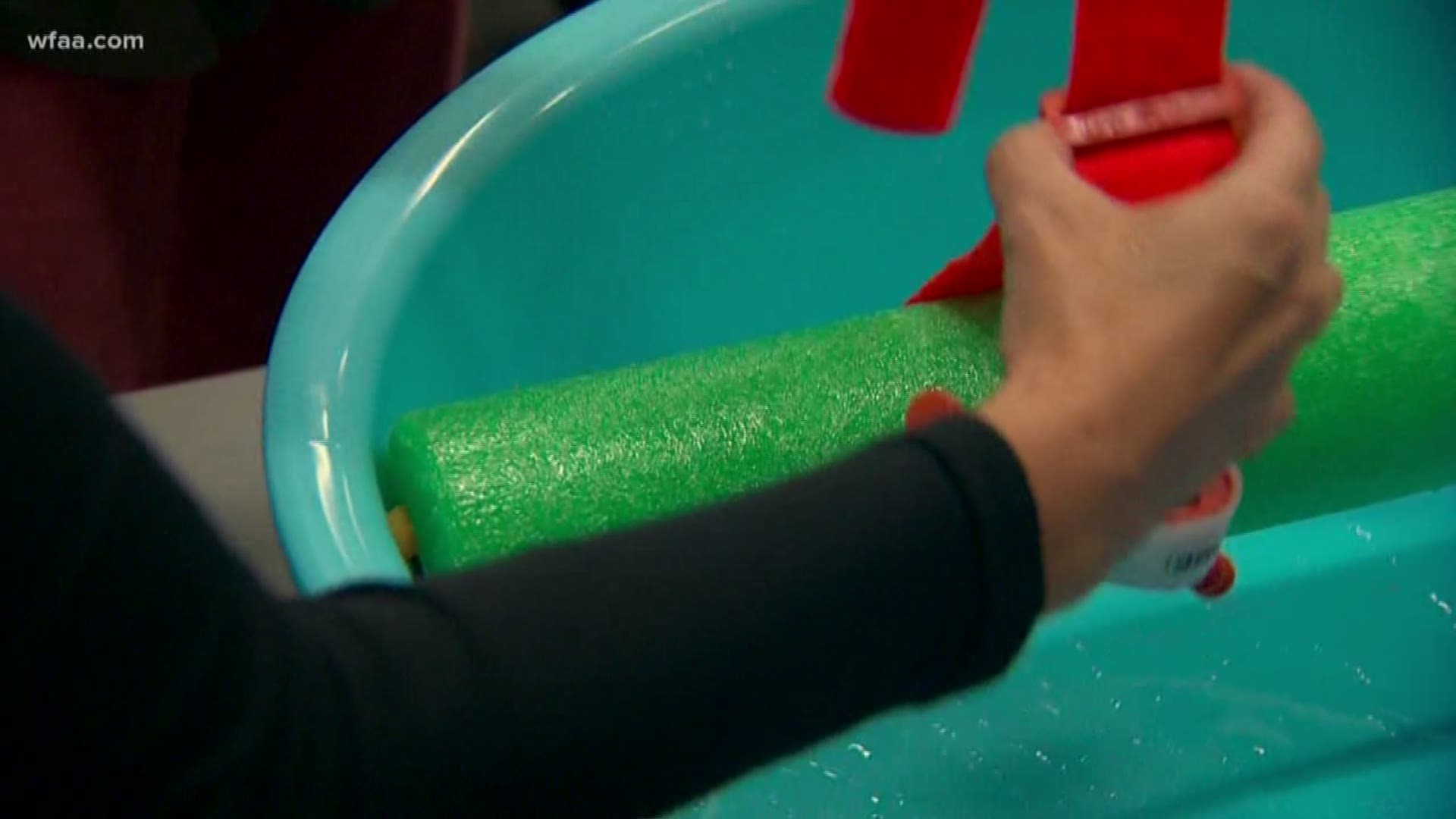FORT WORTH, Texas – Fort Worth ISD teachers are learning to use combat-style tourniquets and bandaging as part of a new program that aims to put life-saving supplies in every classroom.
Thursday, school nurses from campuses across the district were some of the first to receive training from the 'Stop the Bleed' program that is organized by Cook Children's Hospital and Fort Worth Firefighter Charities.
"In a situation when you've got an active bleed, sometimes it takes a person that is right there at that time to stop that bleeding," said Mike Drivdahl, a spokesman for the Fort Worth Fire Department.
The nurses had hands-on experience with the new tools, trying the techniques on test dummies that simulate a limb with blood flow. They were able to feel just how much force is required to stop bleeding with a tourniquet.
"It takes a lot of force," said Darla Robinson, a school nurse at Arlington Heights High School. "But when you're in that situation you get that extra adrenaline rush. I think pretty much anybody could do it if you're trying to save somebody's life."
The nurses will now go back to their campuses to instruct teachers in the techniques. The idea is to help them confront graphic images, learn triage and essential first aid before an emergency. The program is a direct response to a school-shooting epidemic across the country.
"Fort Worth is no different than every other city in America," said Drivdahl.
Tourniquets were once taboo in first aid, but instructors said new research has found that can be the best tool in certain emergencies to save lives and limbs. The kits that are being distributed to classrooms include two different styles of tourniquets for different sized limbs, as well as bandaging and other emergency supplies.
"It's here and it's not going to change and it may even get worse," said Robinson. "We just want to be prepared to take care of whatever we need to take care of, our staff, faculty and especially our kids."

